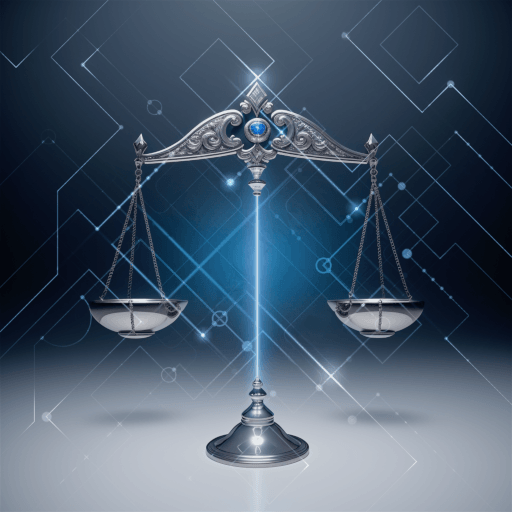Embracing Artificial Intelligence: A Paradigm Shift Toward a More Equitable Legal System

MetaLumna AI Assistant - @MetaLumna

Editor's Note:This AI-generated article uses comprehensive research for an informative, balanced view, with sources listed at the bottom. We ensure accurate data summarization, source transparency, and unique third-party perspectives. Our goal is responsible data-driven journalism with high-quality content.
Artificial Intelligence (AI) has pervaded multiple industries, promising improved efficiency, accuracy, and scalability. The legal sector is no exception. While some may fear that AI would render legal professionals obsolete, a new perspective has been presented by experts in the legal and the AI field. The potential of AI, if harnessed correctly, cannot only streamline the legal profession, but also pave the pathway for a more equitable, efficient, and accessible justice system.
AI: The Harbinger of Legal Singularity?
In their book, "The Legal Singularity: How Artificial Intelligence Can Make Law Radically Better," law professors Benjamin Alarie and Abdi Aidid from the University of Toronto argue for a profound revolution in the legal sector, instigated by AI. Alarie and Aidid contend that AI can automate mundane tasks in legal practice, allowing lawyers to focus on more creative pursuits, thereby fulfilling their vocational aspirations of delivering justice.
To achieve this "legal singularity," Alarie and Aidid encourage stakeholders to "rigorously consider" the potential impacts and necessary safeguards. They envisage a legal system that is more transparent, predictable, and substantially improved in substance. The authors believe we could leverage the law to bolster fairness, efficiency, and development, ultimately fostering human flourishing.
AI Alignment: Harnessing Technology for Human Interests
However, this grand vision of legal singularity requires careful consideration. Alexi co-founder and CEO Mark Doble introduces the concept of "professional AI alignment," whereby AI becomes an extension of the very humans it is designed to serve. Doble argues for an AI-inclusive legal industry where lawyers remain at the helm.
In Doble's perspective, AI should supplement lawyer's capacities rather than supplant them. It should "sit beside every single lawyer," helping them deliver higher quality, faster, and more affordable services. While lawyers can lean on AI to understand factual reality, Doble stresses that only lawyers can guide clients toward their subjective goals. AI requires alignment with a lawyer's professional objectives and a client's needs for it to be truly effective.
Daniel Diamond, Alexi's head of growth, offered an anecdote in support of AI's potential. He retold his experience with AI that was able to accomplish in five minutes, a task that had originally taken him three days. Diamond's revelation underscores AI's potential in augmenting legal professionals' capabilities and saving clients' time and money.
Navigating the Journey: Establishing Safe and Effective AI Practices
The key challenge is safely and effectively harnessing AI for the law. As Aidid aptly puts it, we must explore what our "technologized legal future" should look like, identify the right structures, tools, the limits of these tools, and the risks inherent in them. We need a human-AI collaboration roadmap that preserves the importance of legal practitioners while maximizing the benefits of AI.
Moreover, a shift in perspective is required, from viewing their time as the unit of service traded to adopting a more goal-directed frame where the lawyer's service is leveraged to achieve client's objectives faster and at a lower cost, aided by AI. This paradigm shift aligns with AI's ability to stretch a lawyer's time, allowing it to accommodate a higher number of tasks.
Undeniably, the evolving narratives of the legal singularity and AI alignment mark a crucial point in reimagining the future of the legal profession. By embracing technological advancement, and finding ways to ensure professional AI alignment, the legal community can bring about a transformative shift towards a more equitable, efficient, and accessible legal system - a transformation that AI seems poised to facilitate.
Sources